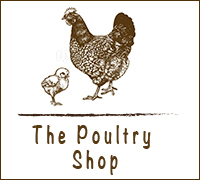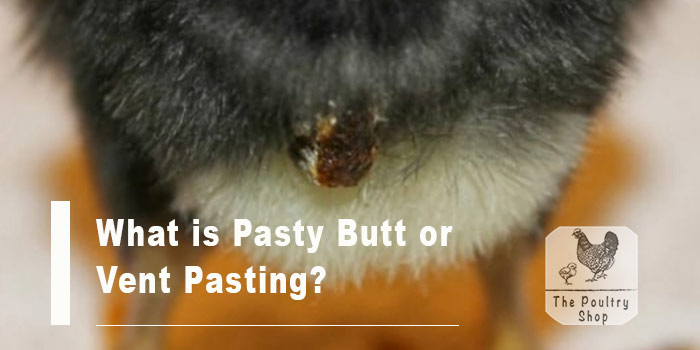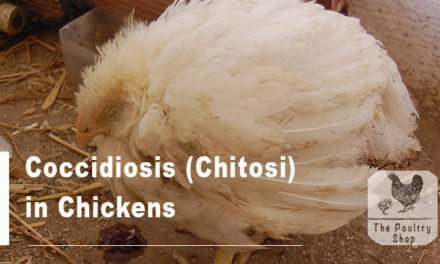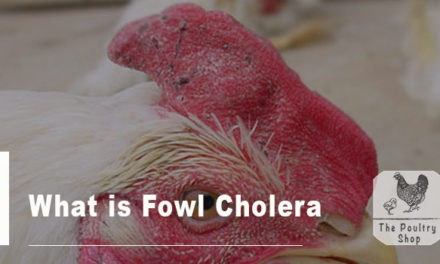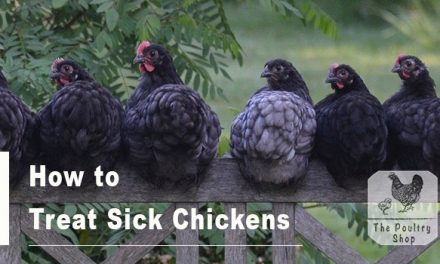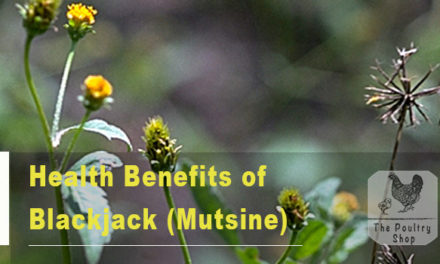Pasty butt or vent pasting is a condition where droppings stick to a chick’s vent area (the place where poop comes out), preventing excretion of waste. The hole becomes blocked with hard stools that stick to the chick’s downy feathers and don’t come off by themselves. This can potentially result to the death of the chick if not identified and treated early.
Pasty butt is most common in young chicks below 10 days of age.
Causes of Pasty Butt
- The greatest cause is stress. After transportation, chicks become dehydrated from heat and lack of water. Giving chicks too-cold water as their first drink can cause pasting. On arrival, ensure you serve the birds with lukewarm water for drinking before you provide feed. Adding stress pack or aloe vera to the drinking water also helps to reduce incidences of pasty butt.
- Too much sugar added to chick’s first water as an energy booster can cause pasting. Adding 2 tablespoons of apple cider to each litre of the chicks’ drinking water during the first week helps to reduce the possibility of pasting.
- Poorly digestible ingredients – ingredients that are poorly digested cause the digesta in the intestine to get thicker or more viscous, which makes it stickier. Thus, it sticks to the back end of the bird. It also corresponds with the fact that the bird’s own digestive enzymes aren’t being produced in enough quantity to break down feed. This is why the issue typically clears itself around 10 days of age. That is around the time that the birds are producing their own digestive enzymes at peak production along with the fact that the bird and the vent are getting larger.
- Stress from cold as a result from transportation, noisy environment and uncomfortable housing conditions such poor bedding or anything that can disturb the comfort of the chicks can also cause pasty butt.
- Overheating usually from heat lamps in the brooder can also cause pasty butt.
- Changing feed type and quality can also result to pasted vents as sometimes chicks may develop diarrhoea.
- Coccidiosis or other parasite infections that cause loose stools may be an indirect issue if the birds are pasting.
How to Treat Pasty Butt
The good news is that pasty butt can easily be treated and recovery can be quick if action is taken quickly. Most birds that exhibit signs of pasty butt will grow out of the condition in 7 to 10 days.
- Wash the chick’s butt under lukewarm running water (not hot water). Work quickly in a warm room to prevent chilling. Young chicks are easily chilled, so it is important to minimize the area of the bird that gets wet. When the droppings soften, gently coax the poop off the down without pulling to avoid tearing the chick’s skin and feathers. Dry the chicks with a soft dry towel to ensure the pink vent is not visible as this will put the chick at risk of pecking or cannibalism from other birds. Apply petroleum jelly such as Vaseline to moisten the vent area and prevent fresh poop from sticking. Return the chick to the brooder
- Give stress pack or aloe vera after a stressful condition eg transportation, noise, changed weather conditions or change of feed.
- Ensure you give birds good quality feed and clean drinking water.
- Frequently serve birds with natural herbs such as aloe vera and blackjack.
How to Prevent Vent Pasting
- Where possible, avoid stressing your birds. In cases where birds have undergone a stressful condition such as transportation, ensure you administer stress relievers such as stress pack, aloe vera, apple cider, etc
- Check each chick for pasting as soon as they arrive home. Examine the vent. First, be sure you are examining the vent and not the bellybutton. Baby chicks have a bellybutton that is located close to the vent. The vent is just below the tail, while the belly button (navel) is further down towards the belly and legs.
- Give birds good quality starter feed as some feed types cause pasting. Sometimes switching to a better-quality starter can solve the problem.
- Avoid noisy conditions for the birds.
- Maintain proper brooding temperatures – if several chicks develop pasty butt after a few days in the brooder, it may be too hot and temperature should be adjusted.
- Consider changing heat sources (switching to a different type of infrared) if you frequently encounter challenges with vent pasting in your chicks.
Did you find this article helpful? Leave a comment below or subscribe to my free Email Newsletter and also like The Poultry Shop Facebook page. Thanks!
